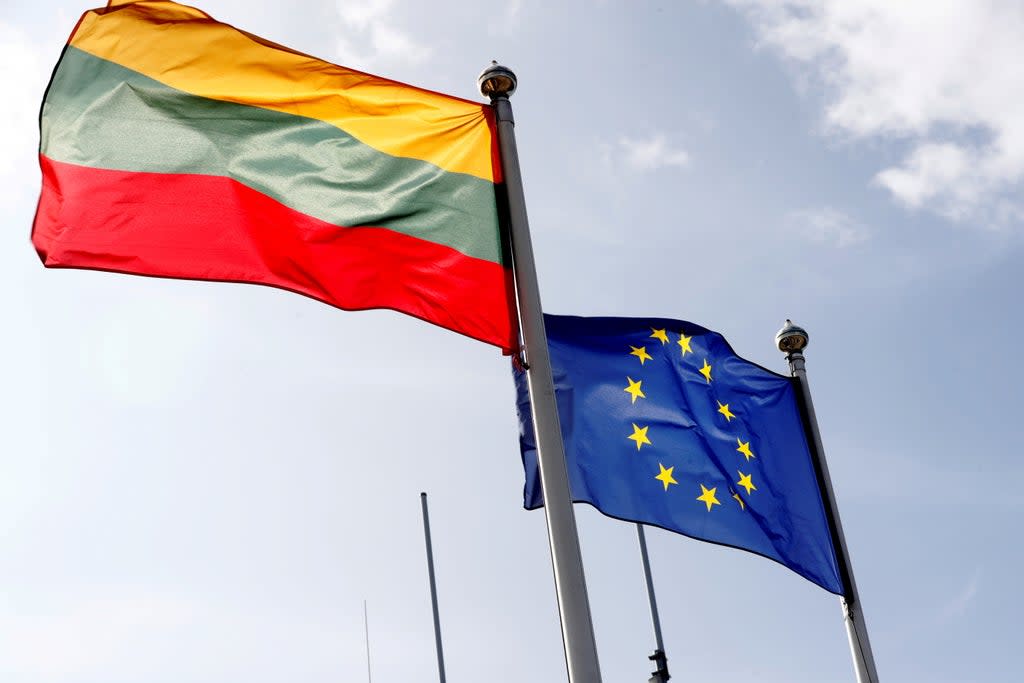Lithuania says China has told multinationals to boycott Vilnius over Taiwan row

China has told multinationals to cut ties with Lithuania or face being shut out of the Chinese market, according to officials and firms in the Baltic state, as a dispute over Taiwan deepens.
Beijing downgraded its diplomatic ties with Lithuania last month after Taiwan opened a de facto embassy in Vilnius - its first in Europe in 18 years - defying a pressure campaign from China.
China views self-ruled and democratically governed Taiwan as its territory and has stepped up pressure on countries to downgrade or sever their relations with the island.
Lithuania’s vice-minister for foreign affairs Mantas Adomenas said some companies had cancelled contracts with suppliers in the EU country.
“(China) have been sending messages to multinationals that if they use parts and supplies from Lithuania, they will no longer be allowed to sell to the Chinese market or get supplies there,” he told Reuters.
Adomenas said that Chinese authorities were also curtailing exports to Lithuania, including by stopping export credit guarantees for Lithuanian imports from China.
"We will not bend to this pressure," he said. "What we decide to do, by calling Taiwan Taiwan, is up to Lithuania, not Beijing."
China’s foreign ministry spokesman Wang Wenbin said on Thursday that China followed international trade rules and again criticised Lithuania for its stance on Taiwan.
“It has created the false impression of Taiwan being separate from China, gravely harmed China’s sovereignty and territorial integrity, and started an egregious precedent among the international community,” he said.
“China will firmly safeguard its sovereignty, territorial integrity and core interests.”
Taiwan has other offices in Europe and the United States but they use the name of the city Taipei, avoiding reference to the island itself, unlike the new representative office in Vilnius.
Lithuania’s direct trade with China is minor, but its export-based economy is home to hundreds of firm that make goods such as furniture, food and clothing for multinationals that sell to China.
Chinese investment in Lithuania was estimated to be around just £70m last year, according to the Central and Eastern Europe Centre for Asian Studies. This amounts to around 0.4 per cent of Lithuania’s total foreign direct investment.
The United Nations COMTRADE database on international trade shows China’s exports to Lithuania reached £1bn in 2020, while China imported Lithuanian goods were worth £258m.
The Lithuanian Confederation of Industrialists, which represents thousands of firms, said some multinationals that buy goods from local suppliers were being targeted by China.
“This week was the first time we saw direct Chinese pressure on a supplier to drop Lithuanian-made goods,” said Vidmantas Janulevicius, the Confederation president. “Previously, we only had threats it could happen, now they became reality.”
“For us, the most painful part is that it’s a European company,” said Janulevicius, referring to the multinational. “Many Lithuanian businesses are suppliers for such companies.”
Lithuania is looking at setting up a fund to shield local companies from Chinese retaliation, a senior government official said.
Vilnius has also appealed to the European Commission for support, and the EU said on Wednesday that it as ready to “stand up against all types of political pressure and coercive measures” against any of its members.
The statement was in reaction to previous reports that Chinese customs have enforced lengthy procedures and delays to Lithuania exports to China.
“If the information received were to be confirmed, the EU would also assess the compatibility of China’s action with its obligations under the World Trade Organisation,” said the statement by EU foreign policy chief Josep Borrell and Executive Vice-President Valdis Dombrovskis.
Lithuania’s ruling coalition had agreed in November last year to support what it described as "those fighting for freedom" in Taiwan, putting its relations with China at risk.
Vilnius withdrew withdrew from a “17+1” group between China and some Central and Eastern European countries in May and urged all EU members to follow suit.
Janka Oertel, director of the Asia programme at the European Council on Foreign Relations, told The Independent in August that Lithuania was “making use of its very limited dependence on China” and that its shift reflected changing sentiment in Europe.
Reuters


